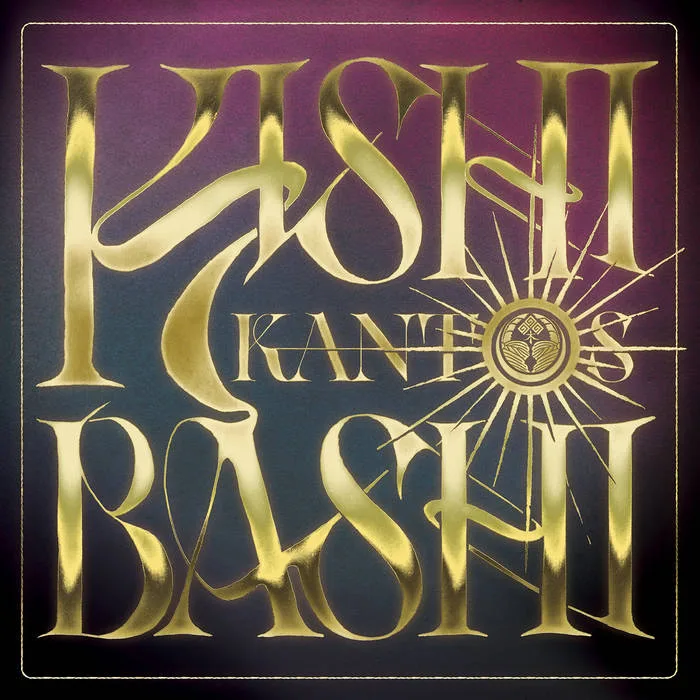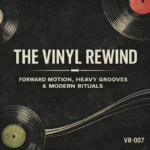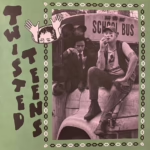 Kishi Bashi
Kishi Bashi
Kantos
Joyful Noise Recordings [2024]

Album Overview: Kishi Bashi, born Kaoru Ishibashi, is a multi-instrumentalist, singer, and songwriter originally from Seattle, now based in Santa Cruz, California. He gained recognition as a violinist and member of bands like Jupiter One and has toured with artists such as Regina Spektor. As a solo artist, Kishi Bashi has developed a unique sound that blends orchestral elements with indie pop, folk, and experimental music. His previous album, Omoiyari, explored Japanese-American internment during World War II. Kantos is Kishi Bashi’s fifth studio album, delving into themes of humanity, technology, and the future. The album draws inspiration from a variety of sources, including the sci-fi novel series Hyperion Cantos and the philosophical ideas of Immanuel Kant. Kantos serves as both a reflection on the challenges posed by AI and a celebration of human creativity. This album is Kishi Bashi’s most expansive record to date, offering moments that fans will enjoy despite the larger production scale. There’s a delicate balance in Kantos, with each track featuring cleaner, more robust orchestrated pop production. However, at times, it struggles to maintain the intricate song structures that have defined Ishibashi’s work over the years.
Musical Style: Kantos marks a shift from the symphonic folk style of Omoiyari (2019) to a more eclectic mix, incorporating elements of Brazilian jazz, ’70s funk, orchestral rock, and city pop. The album features dynamic arrangements and a broader sonic palette, incorporating everything from dance-punk rhythms to orchestral flourishes. The use of electric guitar and drum loops plays a significant role in shaping the album’s energetic sound.
Evolution of Sound: This album represents a notable evolution in Kishi Bashi’s sound, moving away from his folk-oriented past to embrace a wider array of musical influences. His return to jazz roots, combined with an infusion of dance-rock elements reminiscent of his work with Jupiter One, signifies a creative expansion. This is a record that aims high, showcasing a side of Kishi Bashi that we’ve seen glimpses of in earlier tracks dating back to 2014’s Lighght.
Artists with Similar Fire: Kantos leans more into orchestrated pop, drawing comparisons to classic artists like Electric Light Orchestra and The Alan Parsons Project. Additionally, the album’s experimental and genre-blending qualities still have a connection with artists like Tame Impala, Sufjan Stevens, and Andrew Bird.
Pivotal Tracks: “Late Night Comic” stands out for its balance between the early and current Kishi Bashi sound. “Colorful State” shines as a key track on Kantos, with its grand orchestral rock and progressive elements. “Call It Off” is a stunning ballad near the end of the album which features the banjola of Mike Savino (Tall Tall Trees).
Lyrical Strength: The lyrics of Kantos engage with profound themes, such as the tension between technological advancement and human experience. Kishi Bashi reflects on the nature of change, the importance of maintaining our humanity, and the complexities of modern existence. The album’s lyrics encourage contemplation of the future while celebrating the qualities that make us distinctly human. As always, Kishi Bashi’s lyrics are deeply thoughtful, and Kantos is no exception.
KISHI BASHI REVIEW HISTORY
Omoiyari (2019) / Sonderlust (2016) / String Quartet Live! (2015) / Lighght (2014) / Live On Valentine’s (2014) / 151a (2012)
KISHI BASHI LINKS
Website | Facebook | Instagram | Bandcamp | Joyful Noise Recordings
A lifelong fan of new music—spent the '90s working in a record store and producing alternative video shows. In the 2000s, that passion shifted online with blogging, diving headfirst into the indie scene and always on the lookout for the next great release. Still here, still listening, and still sharing the best of what’s new.





